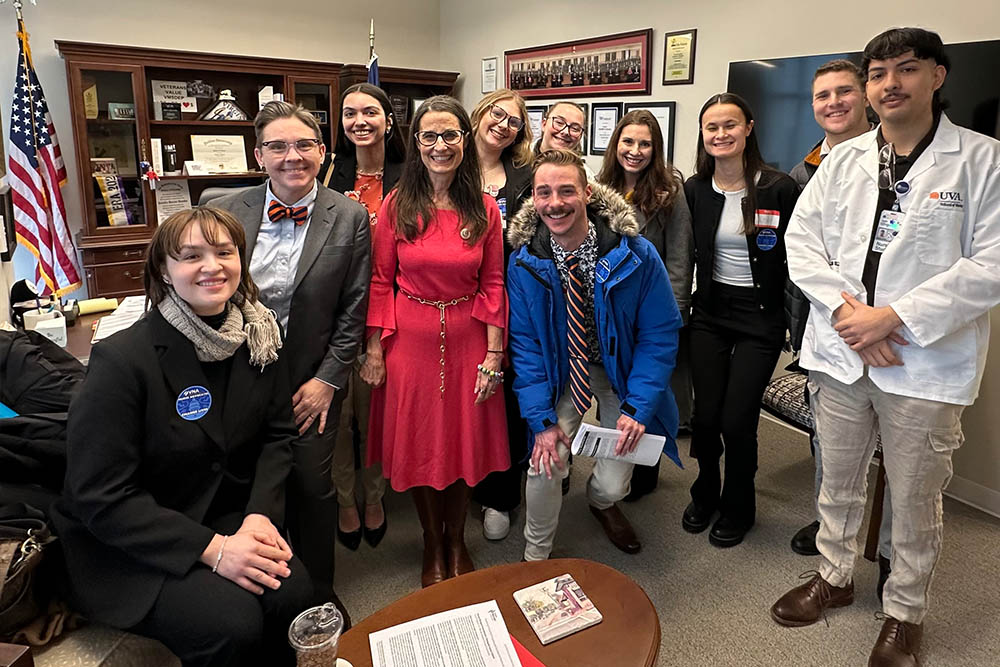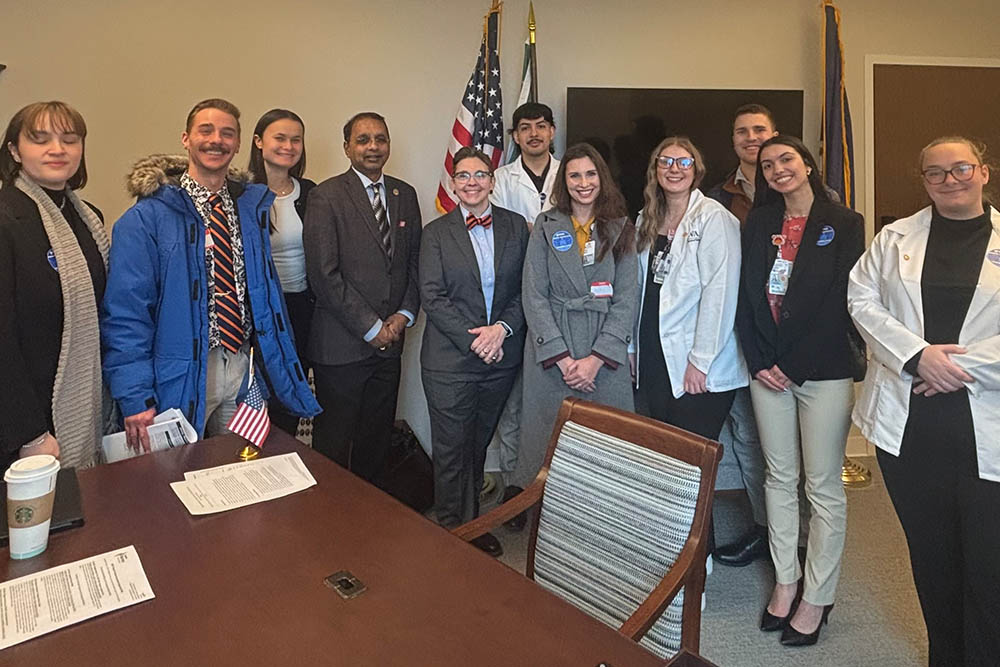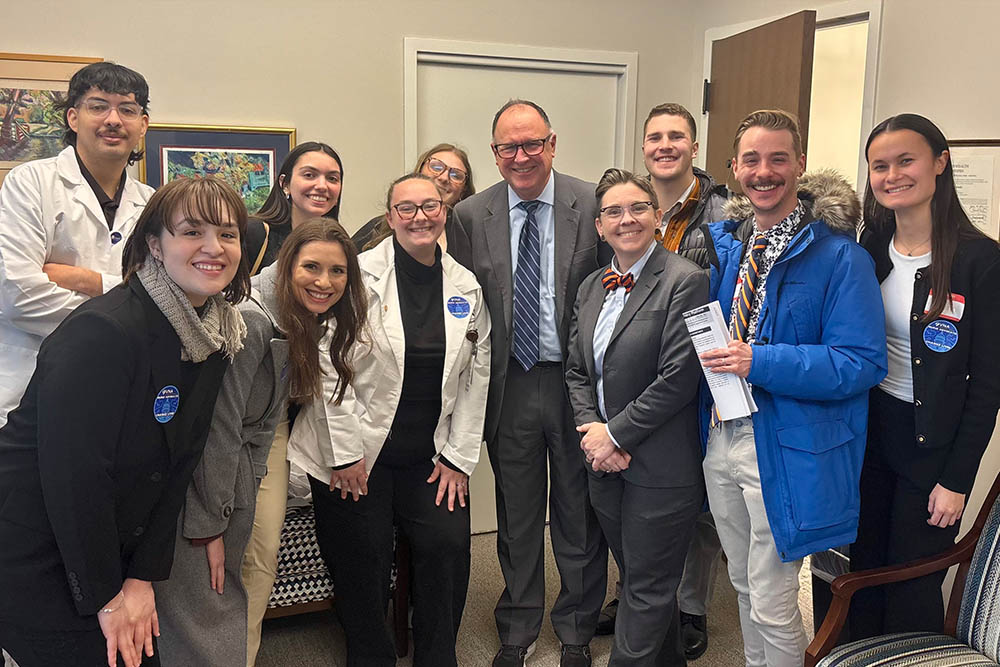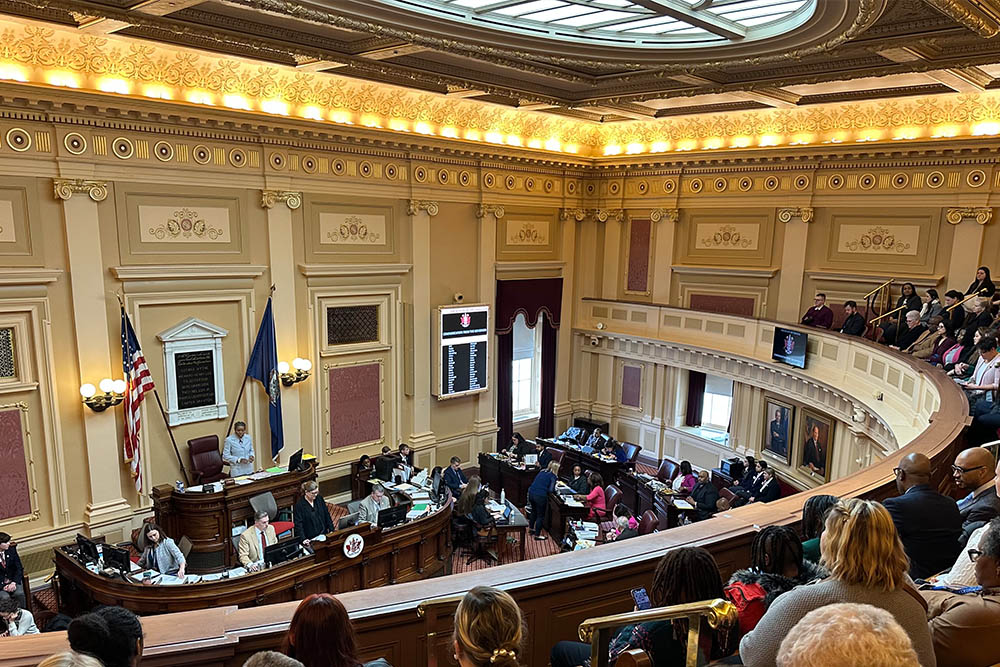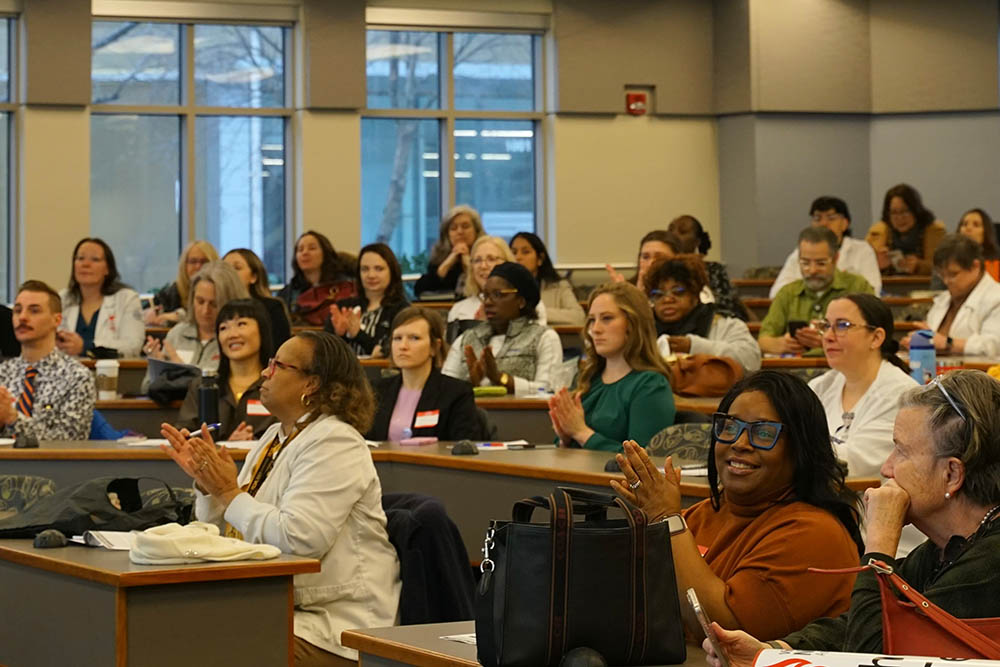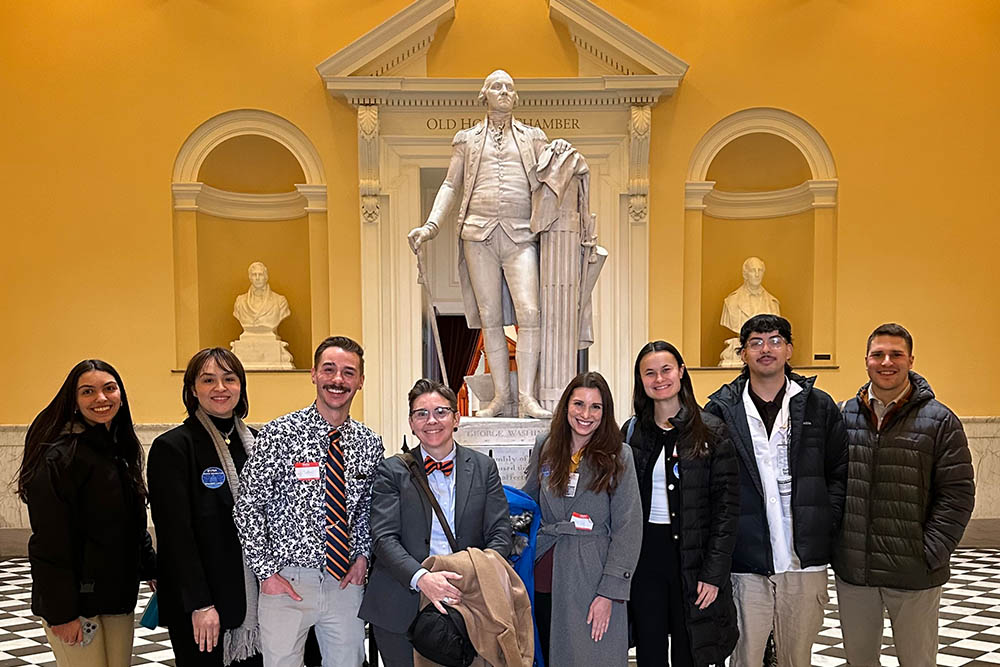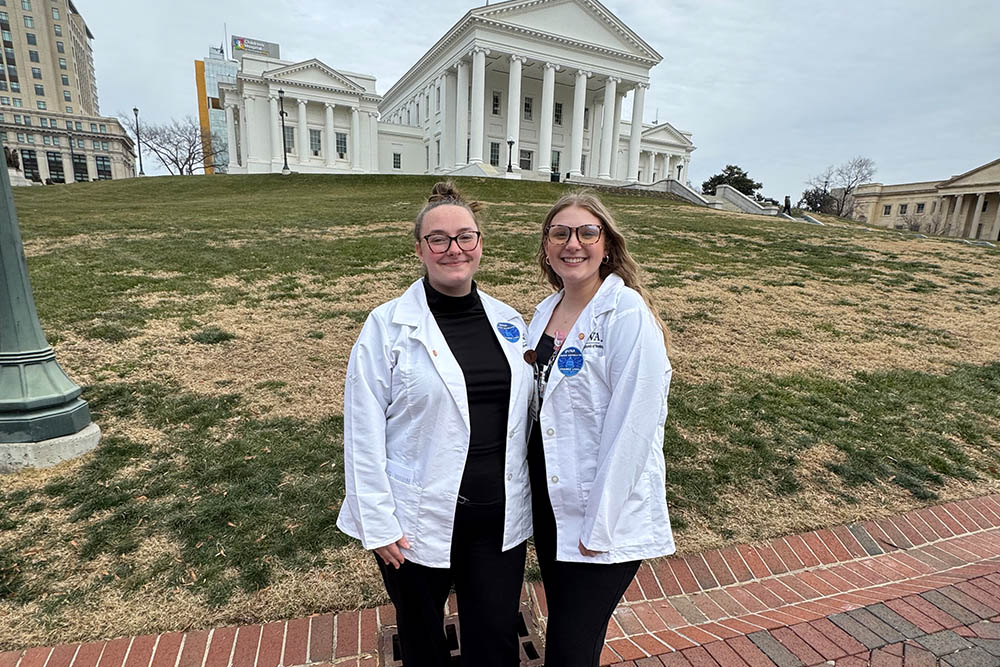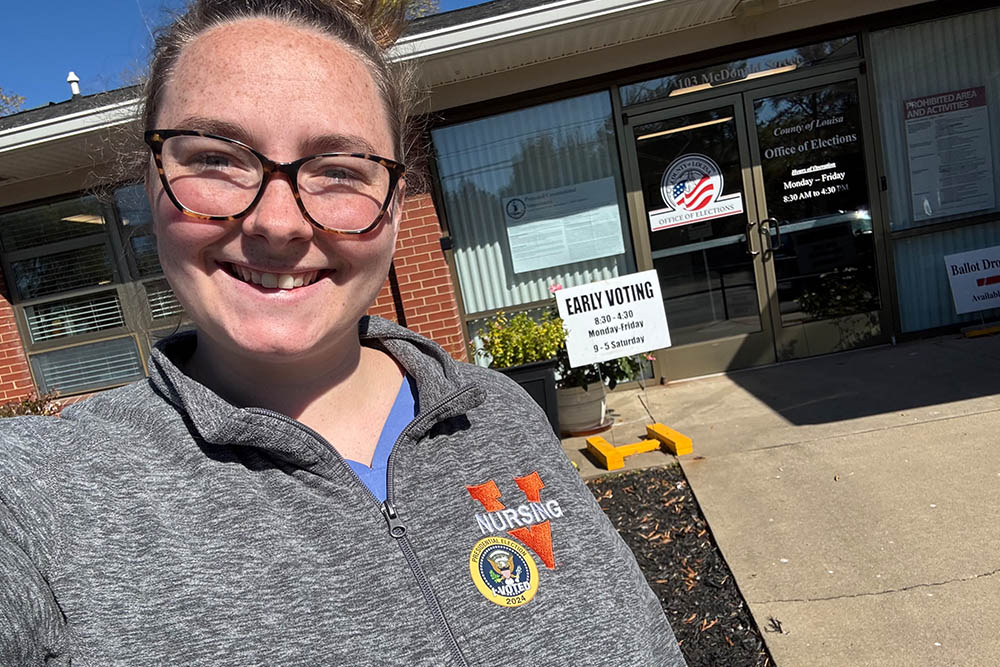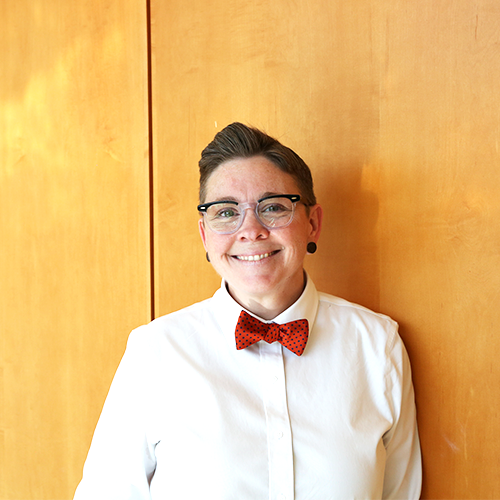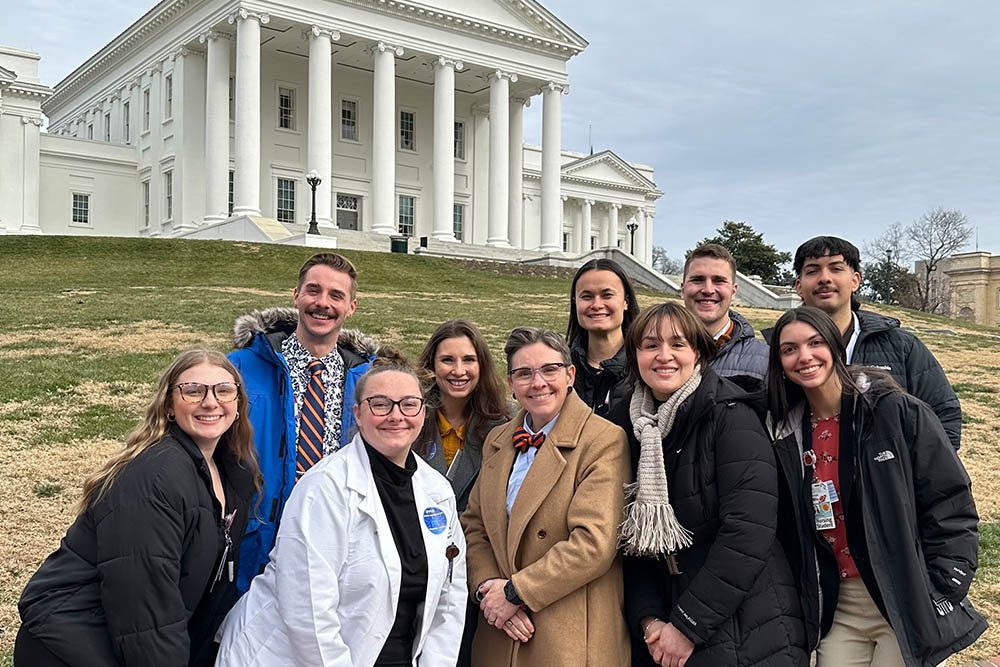
Nurses in the House (of Delegates)!
Fourth-year BSN student Rachel Manriquez (BSN ’25) knew she wanted to take part in Virginia Nurses Association’s “Lobby Day”
"I have a much deeper understanding of the effort required to introduce and gain support for new legislation . . . and insight into how real-world events influence policy development—something I hadn’t fully considered before.”
ABSN student BreAnn Dishman, who attended VNA Lobby Day 2025
when she heard there was legislation being proposed that would develop a reporting system to track instances of violence against Virginia’s healthcare workforce.
The topic hit home, given that Manriquez has seen, first-hand, patient-on-nurse abuse while working as a certified nursing assistant in a Charlottesville outpatient rehabilitation center.
“It’s amazing that nurses always advocate for their patients,” said Manriquez, who grew up in California, “but how do you protect these superheroes when they’re down?”
She vowed to show up and get involved. So did BreAnn Dishman (BSN ’25), an Accelerated BSN student from Goochland, Va.
“I wanted to gain a behind-the-scenes look at lobbying,” explained Dishman, “and now I have a much deeper understanding of the effort required to introduce and gain support for new legislation,” and “insight into how real-world events influence policy development—something I hadn’t fully considered before.”
Manriquez and Dishman joined a host of other UVA nursing students and more than 250 Virginia nurses and nurse advocates who turned out for Lobby Day, organized in part by self-described “policy nerd” Ashley Apple (BSN ’18, MSN ’20, DNP ’20), an assistant professor, now in her second term as commissioner on government relations for the VNA.
With Apple, students hob-knobbed with lawmakers, including Sen. Creigh Deeds, Sen. Jennifer Boysko, and Del. Kannan Srinivasan, listened in on hearings, and talked shop and policy with nurses and fellow nursing students across the Commonwealth.
Lobby Day followed close on the heels of another State House appearance from both Apple and Shelly Smith (BSN '99, DNP '12), associate dean for graduate programs, earlier in January, when both testified before the Virginia General Assembly in support of House Bill 1903, which would create a nursing workforce center, a new state-wide violence tracking system, and train more sexual assault nurse examiners to work in rural areas.
In January, the bill passed unanimously out of the health and human services subcommittee and moved to its next phase in appropriations.
Said Apple, who’s taken a contingent of students to Richmond for the last four years, “It’s been my mission to get nurses fired up and engaged in advocacy and activism.
“Nurses are not only caretakers, we’re fierce advocates, activists, and changemakers.”


